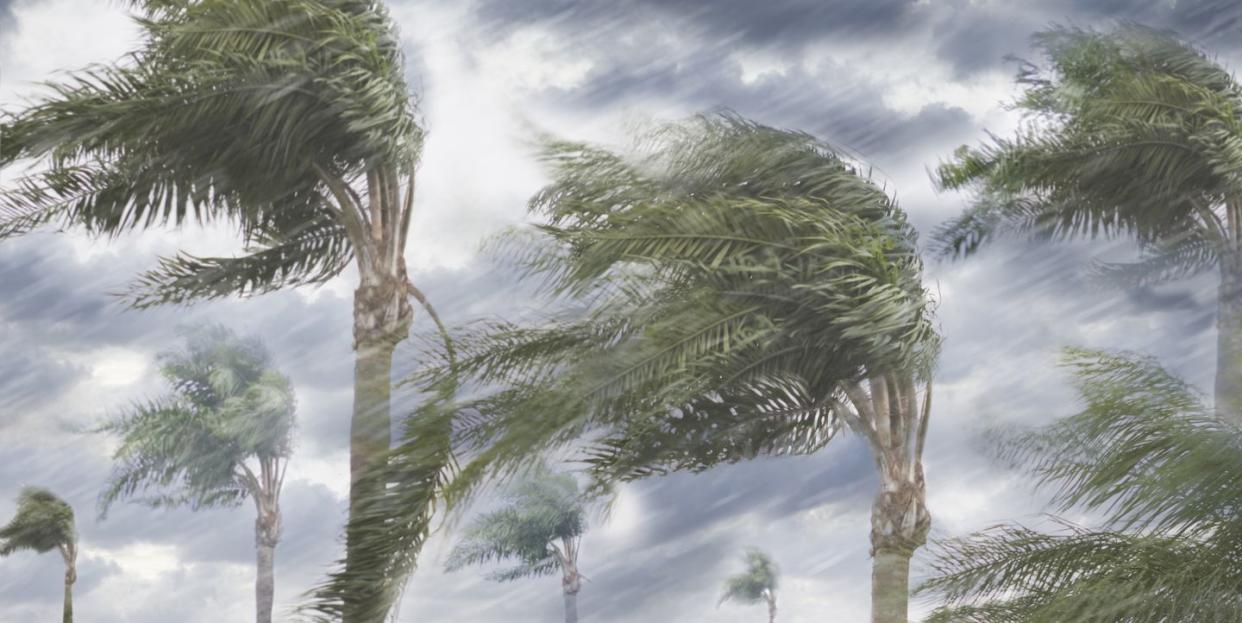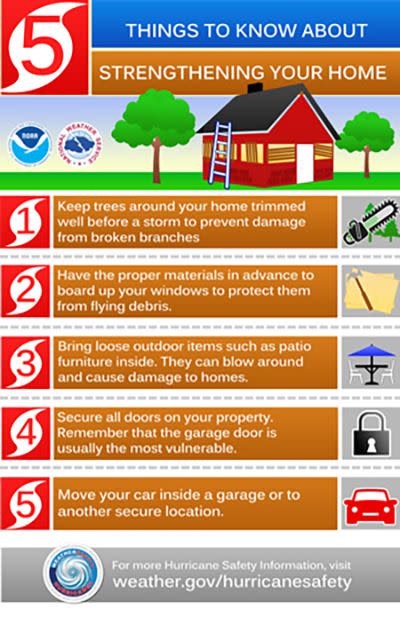Hurricane Season Has Arrived, and Here's What You Should Do to Prepare Your Home

Hurricane season doesn't officially start until June 1, but weather doesn't wait, and this year's first named storm is already upon us. Subtropical Storm Andrea formed in the Atlantic late Monday night and, as of 11 a.m. Tuesday, had weakened to a Subtropical Depression about 280 miles west-southwest of Bermuda, according to the National Hurricane Center. Andrea poses no real threat at this time-but more will be coming.
How Storms Are Named
Andrea was officially named after it reached sustained winds of 39 mph. Each year's list of storm names is maintained by the World Meteorological Organization; six complete lists of alternating male and female names are used in rotation. But if a storm is so damaging that it becomes infamous, such as Katrina in 2005 or or Sandy in 2012, that name is retired from the list and replaced with a new one. The next storm to reach the naming threshold in 2019 will be dubbed Barry, followed by Chantal, Dorian, Erin, Fernand, and Gabrielle.
What to Expect From This Year's Hurricane Season

Thankfully, experts predict a slightly below-average hurricane season in the Atlantic for 2019. According to researchers at Colorado State University's Tropical Meteorology Project, about 13 named storms are expected before the season officially ends on November 30, but only five will be full-fledged hurricanes, and just two of those will be considered "major." (A major hurricane is defined as Category 3 or higher on the Saffir-Simpson Hurricane Wind Scale, with sustained winds of 111-129 mph or beyond.) By contrast, 2018's hurricane activity was slightly above average and included Florence, which caused catastrophic damage and flooding in the Carolinas.
How to Prepare Your Home
According to the National Weather Service, one of the best things Gulf and Atlantic Coast residents can do to prepare for a storm is to keep an emergency kit at the ready. Stock it in advance, before warnings are issued and the stores are cleared out, and make sure it includes crucial basics like flashlights, batteries, a first-aid kit, and enough bottled water and nonperishable food to last several days. Download a complete checklist to follow here.

The NWS also offers five key tips to strengthen your home against possible hurricane damage:
Keep trees near the house trimmed to prevent damage from broken branches.
Have materials to board up your windows on hand.
Bring unsecured outdoor items, like patio furniture and planters, inside.
Move your car into the garage or to a separate, secure location.
Secure all doors on your property, especially garage doors, which are usually the most vulnerable.
Follow House Beautiful on Instagram.
('You Might Also Like',)

